
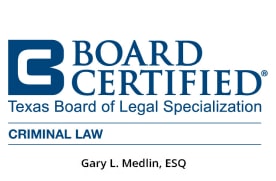
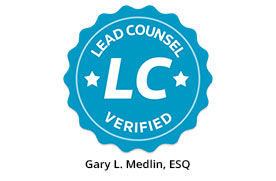










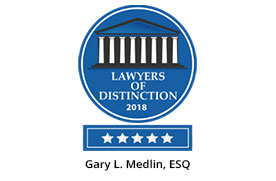








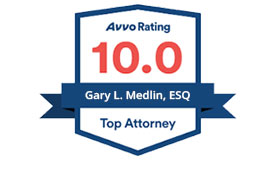
Case Statistics


“Dallas County District & County Clerk Records January 1992-August 2021”
View More Recent Case Results
These aren’t easy questions to answer, and you may never have thought about needing a Dallas criminal defense attorney until now. We want you to know that we can help you. We are The Medlin Law Firm, and we have been defending those charged with crimes in Dallas for nearly 75 years combined. During that time, our Dallas criminal lawyers have helped thousands of people just like you facing criminal charges in Dallas County and throughout Texas, with the benefit of an exclusive focus on criminal defense and no other type of law.
Proven criminal defense in Dallas & throughout Texas. The confidence that you’re represented by the most qualified attorney available for your criminal defense is vital to your case. At The Medlin Law Firm, we want you to know you can trust us to act in your best interests and handle every aspects of your case with professionalism, ethics and transparency. It is in that spirit that we are proud to share a sampling of some of our success stories with you.

Facing criminal charges in Dallas is a serious matter that can have lasting consequences, and trying to handle the situation alone can be overwhelming. Without the help of an experienced defense attorney, you may not fully understand your rights or the best way to defend yourself. A skilled Dallas criminal lawyer acts as both your advocate and guide, ensuring you know what to expect at every step of the legal process. They don’t just offer advice—they take the time to gather evidence, build a defense strategy tailored to your goals, and represent you in court. With in-depth knowledge of the Dallas legal system, they can navigate the complexities on your behalf, working to protect your future and secure the best possible outcome for your case. Having the right attorney by your side gives you the confidence that someone is fighting for your rights and keeping you informed, so you don’t have to face this challenging time alone.
More About DallasVisit our blog to learn about current events and news in the world of criminal defense. We offer our take on anything ranging from famous cases to specifics about criminal law.
Whether you’ve been charged with a felony or misdemeanor, you don’t have to let a criminal charge ruin your life. The Medlin Law Firm is the criminal defense team you can count on to defend your rights and your freedom.





In addition, we are familiar with the burden that the state is held to in order to get a conviction, and we could work to ensure they do not cut any corners. If your rights are violated in any way, your attorney could fight to hold the violator accountable. A Dallas criminal lawyer from our firm could ensure that your rights are preserved and advocate for you each step of the way. Call today to schedule a consultation and get started on your case.
WE ALSO KNOW THE FOLLOWING LANGUAGES
Our DWIE-book
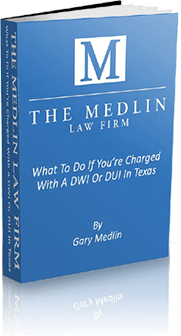
CHARGED WITH A DWI/DUI? What To Do If You Are Charged With A DWI OR DUI IN TEXAS
Download Guide Now Descargue Nuestra

Fort Worth is often overshadowed by its larger neighbor Dallas, Texas. The TV show “Dallas” made the city world-famous, though it is based on the real-life location of South Fork Ranch 25 miles north of Dallas. The Dallas Cowboys are a national team, though their stadium is located in the Fort Worth suburb of Arlington, Texas. But how does Dallas differ from Fort Worth aside from having name recognition?
The population of Dallas is 1.3 million. Fort Worth is significantly smaller. It is home to around 900,000 people. For comparison, the entire Dallas-Fort Worth metro area is home to roughly 7.5 million people.
Fort Worth covers 355 square miles. Dallas is barely any bigger; it covers 383 square miles. This gives Fort Worth a significantly lower population density. The real density in Dallas is even greater because there are large areas like the Trinity River Forest and Dallas Love Field that don’t allow for new construction. This gives Fort Worth an edge over Dallas because infill development could allow Fort Worth’s population to grow.
Downtown Dallas and south Dallas are the oldest neighborhoods in the city. For example, Reunion Tower is named after a French colony that was founded there in the 1850s. Dallas expanded north along I-75 as soon as it was built. Then it surrounded University Park and Highland Park before continuing growth through annexation. Far North Dallas stretches from Loop 635 to the George Bush Tollway. It is mostly contained within the Dallas North Tollway and Highway 75. Then you hit established suburbs like Plano and Frisco.
Fort Worth didn’t aggressively expand north until after the development of Alliance Airport. The cargo-only airport north of Fort Worth became a shipping hub, and that in turn led to an influx of manufacturers and residential construction. That has occurred in the past twenty years.
Development around Dallas-Fort Worth Airport is still going on. That’s understandable given that the airport was originally built on empty farmland equidistant between the two cities.
The top industries in Dallas are technology, financial services and defense. The Texas Instruments plant that invented the microchip is located in Dallas, and there are a number of microchip wafer fabrication plants in north Dallas. Telecom company AT&T is headquartered in Dallas. McKesson is a healthcare IT and medical supply distributor. They are headquartered in the DFW area.
The presence of several large airports affects the area’s economy. The headquarters of Southwest Airlines is in Dallas, while the headquarters of American Airlines’ parent company is in Fort Worth. CBRE Group is one of the largest commercial real estate services firms in the country. Its headquarters are in Dallas.
Fort Worth’s economy is more closely tied to oil and gas. Exxon Mobile’s headquarters are in Irving. However, Energy Transfer Equity, a top 100 company, is based in Dallas, as is petroleum refiner HollyFrontier Corporation. Smaller energy firms fill the suburbs. This includes Pioneer Natural Resources, Fluor Corporation and Vistra Energy.
Defense is another major player in the Fort Worth economy. This is mostly due to the large Lockheed Martin factories in Fort Worth and the Naval Air Station Fort Worth Joint Reserve Base. But there are major defense contractors like Raytheon in the Dallas area.
In both cities, health and education are major employers. Texas Health Resources is located in Fort Worth and runs several hospitals. But Dallas has several major hospitals in downtown including world-class children’s hospitals. The Dallas and Fort Worth School districts both employ more than ten thousand people. And the DFW area has a number of universities. The University of Texas Arlington campus is closer to Fort Worth than Dallas, but the University of North Texas is just north of Dallas. There are a dozen smaller colleges in the Dallas-Fort Worth area. Then there are quirks such as the Texas A&M law school is located in Fort Worth.
Dallas and Fort Worth both have ballets and symphony centers. Fort Worth is notable for having a science and history museum, modern art museum, American art museum, and the Kimbell Art Museum that has works that don’t fall into any of those categories. Fort Worth is also home to the National Cowgirl Museum and Sid Richardson Museum. This showcases Fort Worth’s Western heritage.
Dallas has its own museum of art. Ross Perot founded the Perot Museum of Nature and Science. Dallas has a holocaust museum and the Sixth Floor Museum at Dealy Plaza to memorialize where JFK was killed. The Frontiers of Flight Museum is located in Dallas. The CR Smith Museum documents this history of American Airlines; that’s located in Fort Worth.